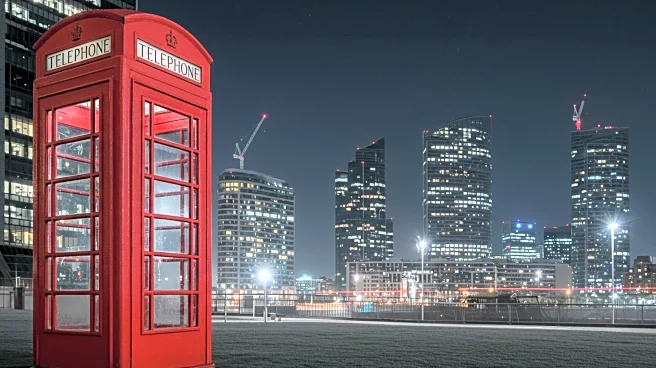What's Happening?
The British government has extended the deadline to October for deciding on China's proposal to build its largest embassy in Europe, located in London. This extension follows Beijing's refusal to fully disclose details of the embassy's architectural plans, which include blacked-out sections. The proposed site, near the Tower of London, has been a point of contention for three years, facing opposition from local residents, lawmakers, and Hong Kong pro-democracy activists. Concerns have been raised about the potential use of the embassy for espionage. The planning consultancy DP9, representing China, stated that the current level of detail in the plans is adequate, and further details are unnecessary. The Chinese embassy in London has expressed serious concern over the delay, urging the UK to approve the planning application promptly.
Why It's Important?
This development is significant as it reflects the ongoing geopolitical tensions between the UK and China, particularly regarding security and diplomatic relations. The decision on the embassy could have broader implications for international diplomatic practices and security policies. The potential for the embassy to serve as a base for espionage activities raises critical security concerns, influencing not only UK-China relations but also international diplomatic norms. The outcome of this decision could impact future diplomatic engagements and security strategies, setting a precedent for handling similar situations.
What's Next?
The UK government is expected to make a final decision by October 21. This period will likely involve further examination of the plans and potential negotiations between UK and Chinese officials. The decision could elicit responses from various stakeholders, including political leaders and civil society groups, who may have differing views on the construction based on security and diplomatic considerations. The outcome may also influence future UK policies regarding foreign diplomatic constructions.










